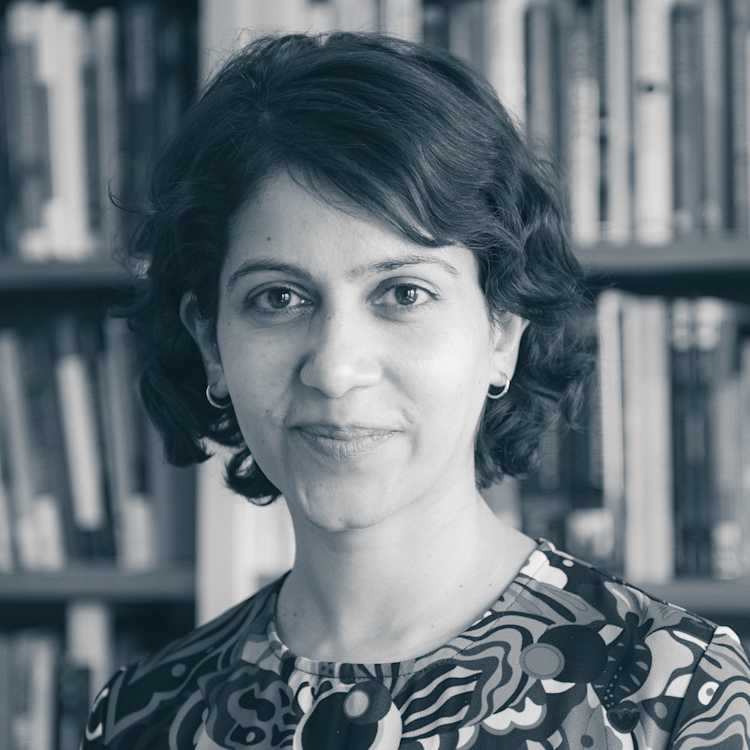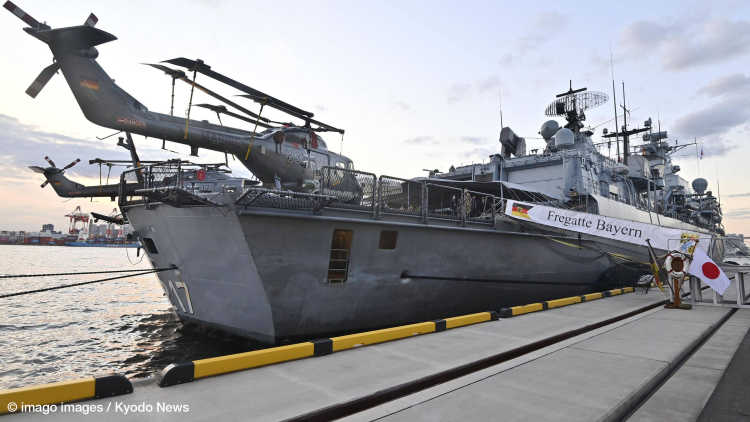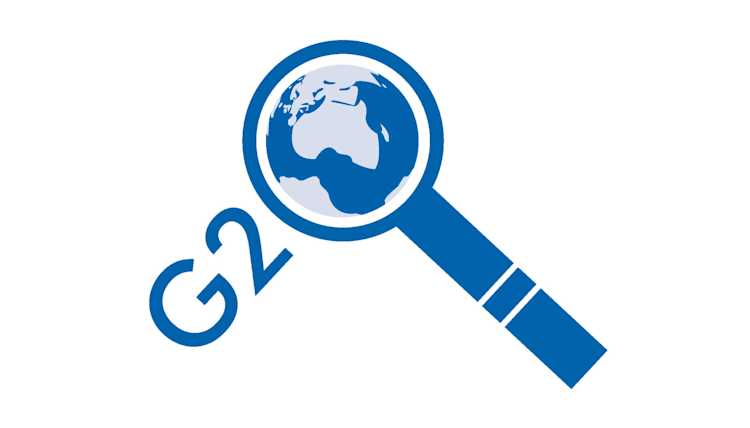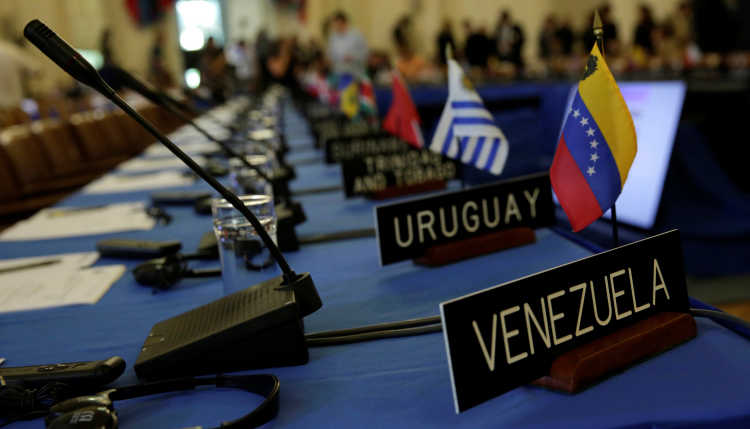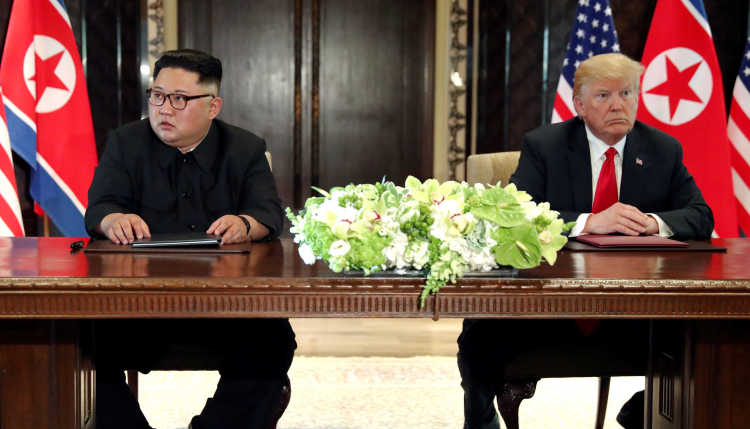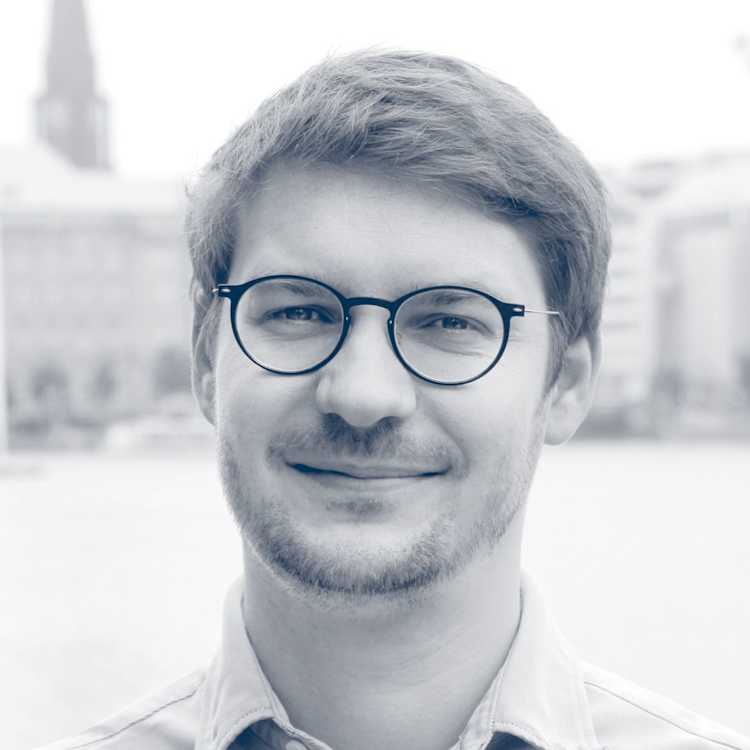- Home
- Publications
- GIGA Focus
- Germany in the United Nations Security Council: Reforming Multilateralism
GIGA Focus Global
Germany in the United Nations Security Council: Reforming Multilateralism
Number 2 | 2020 | ISSN: 1862-3581

On 1 January 2019, Germany began its two-year term as a non-permanent member of the United Nations Security Council (UNSC). As the country has started the second year of its tenure, this GIGA Focus takes stock of Germany’s achievements thus far. It points to the challenges, and then suggests strategies through which Germany could widen the reach and deepen the impact of its work.
Germany deserves to be commended for its achievements in the UNSC at three levels. At a macro level, it has helped revive and enrich a global debate on multilateralism. At an operational level, it has initiated some valuable and detailed proposals for action. At a symbolic level, it has made some helpful moves.
Despite these achievements, German diplomatic efforts to build support for multilateralism face several challenges. Within Germany, even though there seems to be support for international cooperation, there is ambiguity amongst the German electorate on what multilateralism actually means. Externally, although Germany has tried to build international support for multilateralism, including via its initiative “Alliance for Multilateralism,” it is not clear what values underpin the concept nor whom Germany regards as its real allies.
The challenges, in turn, derive from the fact that the German foreign policy establishment has paid insufficient attention to the values that should underpin multilateralism. It has also largely failed – thus far – to develop a convincing narrative for multilateralism. Plus it has ignored a fundamental risk to existing multilateral institutions that derives from “weaponised interdependence.” Without attention to these three issues, it will be difficult for Germany to have a meaningful and constructive impact on the debate and practice of multilateralism.
Policy Implications
To get more bang for its buck, Germany needs to a) have a fundamental rethink on the values that underpin – or should underpin – its own foreign policy, and how these values connect with its quest to reform multilateralism b) develop a winning and sustainable narrative for multilateralism that appeals to multiple layers of society and c) explore ideas for a fundamental reform of multilateral organisations, taking into account geoeconomic considerations.
On 1 January, 2019, Germany began its two-year tenure as a non-permanent member of the United Nations Security Council (UNSC). The fact that this is the sixth time in the history of the UN that Germany has occupied this role should not dilute the import of its election to the UNSC this time round: at a moment when multilateralism faces severe challenge from multiple sides, the burden of responsibility that rests on the shoulders of members is especially high. It is also worth mentioning that Germany officially announced its decision to campaign for a non-permanent seat at the UNSC on 27 June, 2016, at a GIGA Distinguished Speaker Lecture delivered by the then Foreign Minister (and now Federal President) Frank-Walter Steinmeier. The history of the initiative is, in some ways, thus nicely connected with the history of our research institute.
This GIGA Focus proceeds in three sections. The first provides an assessment of Germany’s record in the UNSC thus far. Although only half-way through its term, Germany deserves credit for some important achievements. The second section points to the challenges and limitations that Germany still faces. The third section offers possible policy actions whereby these challenges could be addressed.
1. Why Germany’s Efforts Matter
The UNSC is not the only multilateral forum where Germany has shown proactive engagement. To name just a handful of examples: in December 2016, Germany hosted the Ministerial Council of the Organisation for Security and Cooperation in Europe (OSCE); in June 2017, it held the presidency for the leaders’ level G20, and thereby facilitated multilateral cooperation across several issue-areas ranging from trade, excess capacity in steel to Agenda 2030 and the Compact with Africa. This year, in January 2020, Germany became one of the 47 elected members that constitute the UN Human Rights Council; in July 2020, it will take up the rotating Presidency of the European Council. Just how intrinsic multilateralism is to modern Germany is nicely captured by Thomas Bagger:
“If “Never Again” was the first fundamental lesson drawn from the collapse of civilization during the Nazi years that was meant to address the challenge of Germany’s history, “Never Alone” was clearly the second most important and deeply ingrained imperative. Multilateralism was at the heart of German foreign policy as it emerged after the founding of the Federal Republic in 1949—it was designed to solve the second part of the “German question,” the challenge of geography that put, at the center of the continent, a country that was “too big for Europe, too small for the world.” If anything, this conviction was further reinforced by the German reading of how unification after 1989 finally came about.” (Bagger 2019)
Germany’s current drive towards strengthening multilateralism thus has roots in the country’s post World War II identity, and how it chose to embed itself in the community of European and world nations. In this sense, German engagement with multilateral institutions is not new. But the international context of multilateralism has itself undergone a drastic alteration in recent years.
Since around the turn of the millennium, multilateral cooperation had languished for a variety of reasons. These included the rise of new powers (e.g. Brazil, Russia, India, China and South Africa) with sometimes different visions of global order from the incumbents, and institutional limitations that rendered existing decision-making rules ill-suited to large and diverse memberships (e.g. consensus-based decision-making in a WTO that had come to include over 160 members). Recent years have seen an exacerbation of the problem, in good measure due to the increasing disengagement of the US from the system. This trend predates the arrival of President Trump on the scene: President Obama had also signalled the reluctance of the US to be the main bearer of the responsibility of providing global public goods (“Free riders aggravate me,” Goldberg 2016). President Trump has taken this critique further, for instance lambasting the WTO “the single worst deal ever made.” In September 2019, addressing the UN General Assembly, he issued at least a covert challenge to multilateralism by overtly rejecting “globalism,”
“Wise leaders always put the good of their own people and their own country first. The future does not belong to globalists. The future belongs to patriots […] Globalism exerted a religious pull over past leaders, causing them to ignore their own national interests. But as far as America is concerned, those days are over.” (Trump 2019)
Nor is the President’s professed contempt for globalism – and indeed its multilateral instruments – mere “cheap talk.” By withdrawing from the Paris Agreement, and by triggering a complete paralysis of the WTO’s Dispute Settlement Mechanism (by blocking the appointment/ reappointment of members of the Appellate Body), the US has given short shrift to multilateral rules and institutions, not only in words but also in deeds. With the founder and guarantor of the post-war system of global governance – and still the world’s hegemonic power, even if somewhat diminished in relative terms – showing such readiness to walk away from the rules that it had once created and upheld, multilateralism needs all the help it can get. Against this difficult background, the efforts that Germany is leading are all the more commendable.
Germany, along with other international players (most notably France), has made a deliberate effort to defend multilateralism and rebuild support for it. It has done this at three levels: at the macro level, at the operational level, and at a symbolic level.
At the macro level, Germany has played a key role in raising awareness of the continued importance of multilateralism, even as the US has challenged it and undermined it. Compare, for instance, Heiko Maas’s speech at the UN General Assembly to Trump’s, and the difference in approach is striking:
“Anyone who loves their country will be committed to cooperation. Because only if we work together will we all have a future. Sustainable foreign policy is multilateral foreign policy. It is this very concept that underpins the United Nations. It is also the guiding principle for German and European foreign policy […] […] Cooperation is anything but a betrayal of one’s own country. Rather, it creates the preconditions for our countries’ security and prosperity.” (Maas 2019)
Germany has backed its plaidoyer on the value of international cooperation through multilateral institutions, and in keeping with the refrain of “never alone,” with an innovative idea – an Alliance for Multilateralism. In 2018, at the Heads of Mission’s Conference in Berlin, Heiko Maas had advanced the following concept:
“We are thinking here about a network of partners who stand up together for the preservation and further development of the rules-based order, who defend multilateralism and who are willing to use political capital to this end because they understand what multilateralism truly means. Multilateralism means investing in an order when doing so does not lead to an immediate benefit for oneself, but secure in the knowledge that one can rely on this order when needed one day.” (Maas 2018a)
While the idea to unify a group of like-minded countries around the idea of multilateralism was a good starting point, the list of initial candidates was not particularly original. In his guest op-ed piece for the Handelsblatt, for instance, Maas mentioned Canada, Japan, and South Korea (Maas 2018b). If this was going to be the core group, then the Alliance risked reducing itself to yet another attempted incarnation of an elite club of liberal democracies, preaching to the already converted. Critique followed (e.g. Narlikar 2019). In fairness to the Foreign Minister and his team, the outreach to potential partners improved and expanded in the following months. When the alliance had its first meeting in September 2019, co-organised by France and Germany, it no longer looked like a “Rich Man’s Club” and involved some 50 countries from the world’s different regions (Alliance for Multilateralism 2019). India, for example, a country traditionally wary of joining “alliances” issued an enthusiastic press statement in September to support the initiative:
“India is delighted to join the Alliance for Multilateralism and appreciates the initiative of France and Germany. We do so because we believe that multilateralism matters, really matters and it is under stress today as much as from nationalism, as from mercantilism. The Kindleberger trap on the shortage of global goods is far more serious than the Thucydides Trap […].” (India Statement 2019)
France and Germany have together helped create an awareness of the virtues of multilateralism, reminding different stakeholders that its gains cannot be taken for granted; additionally, by developing his Alliance for Multilateralism, Maas has created a potential group of vital international supporters for the concept.
Importantly, the collective leadership that Germany has advanced to support multilateralism includes attention to the actual practice of multilateralism. Through a variety of measures in the last year, Germany has highlighted key dimensions that need to be included in debates on security (Prager 2019). While addressing current conflicts in Libya, Syria, and Iran, Germany has also emphasised the importance of conflict prevention stating, “We want to change the structure of the UN Security Council’s work. Right now, we only deal with crises, conflicts and wars when they have already taken place. People have to die. And it is not enough for them to starve to death or to die of thirst. One has to be a victim of armed violence” (UN 2019). Consistent with the call to expand the global community’s understanding of security, Maas has taken a particular interest in raising concerns about the impact of climate change on conflict. Germany’s sponsorship of Resolution 2467 for combating sexual violence in conflict was another important step in bringing a vital human dimension into security debates (UN 2019). Additionally, Germany has also highlighted the urgency of putting more traditional concerns, such as disarmament, back on the agenda.
Besides providing a frame for the debate on the value of multilateralism, and also getting things done at a nitty-gritty level, Germany deserves credit for some moves that it has made at a symbolic level. For the first time since 1964, on 3 April 2019, Christoph Heusgen, the German Ambassador to the United Nations, had the curtains opened in the Security Council chamber. The German Mission to the UN tweeted: “Sunshine ☀ during today’s debate in the #UNSC – a rare occurrence throughout its 75-year history. #Transparency & openness to broader @UN membership & civil society are crucial not just symbolically, but also in practice for credibility & legitimacy” (twitter 2019). France and Germany also decided to coordinate their successive presidencies to demonstrate their shared commitment to multilateralism and European values. On their own, these gestures might not have added up to much. But when accompanying the legwork that Germany put in throughout the last year on both the macro-level and the operational level, the promise of improved transparency and better coordination may be seen as the icing on the cake.
2. Challenges and Limitations
At a time when multilateralism is in dire need of champions, Germany (together with France and others) has emerged as a powerful advocate and defender of global cooperation. But despite all the good intentions driving its foreign policy, there are several challenges that Germany faces.
First, it is true that insofar as actions speak louder than words, Germany’s actions since the end of World War II have shown that its leadership sees its country’s interests and identity as deeply embedded in multilateral institutions. But what this actually means for the German electorate is, in fact, not entirely clear, at least in recent times. In a survey conducted by the Körber Foundation last year, 67 per cent of Germans did not know what multilateralism meant, 50 per cent said they did not associate anything with the word, and 42 per cent said that they had never heard of the term (Körber Foundation 2019).
If the survey does indeed reflect the sentiments of the general German population, then these results should be troubling. German foreign policy seems to be built on a principle that its own people do not understand. Once the people surveyed were given the meaning of the term, “Germans proved to be great supporters of multilateralism” (Körber Foundation 2019: 6). But in this context, the failure of what populists tend to call the “global elite” to clarify what multilateralism stands for in the first place should be even more galling. Even though a majority of its population supports globalisation and international cooperation, it seems that government officials, academics, think-tankers and others have not done a good job in explaining why multilateral institutions and rules are necessary for preserving globalisation and international cooperation. Clearly, better and more engagement is needed at all levels of German society to facilitate greater clarity on the concept at the very least, and preferably also to address and incorporate the concerns of a small but vocal minority (yes, from the extreme Right and Left, but also sometimes the political centre including the Greens). If Germany’s attempt to defend, rescue, and reform multilateralism is to succeed, it cannot be done meaningfully without the strong backing of its own electorate.
Second, externally too, it is not clear what the Alliance for Multilateralism stands for, nor who qualifies to belong to the group. In an effort to be inclusive, the tendency thus far has been to refer to the alliance as a loose network, with countries pragmatically joining forces over specific issue-areas and concerns. But this strategy of defending multilateralism à la carte seems to get the wrong end of the stick.
A flexible and pragmatic network of countries that selectively claims to stand for multilateralism per se does not, in fact, help the cause. Countries with divergent interests, and indeed highly polarised understandings of how the rules should work, can legitimately claim to – and indeed do – defend some form of multilateralism. China, for example, presented itself as a guardian of the multilateral trading system at the World Economic Forum in 2017, at a time when the US was already giving clear signs that it would be willing to take a wrecking ball to it; it is only now becoming apparent though that China’s understanding of how the system should function is quite different from its many western (and indeed southern) counterparts (Bradsher 2020). But neither China nor those who contest its interpretation of the rules (for example, in the context of the WTO) are wrong. This is because multilateralism is an instrument of international cooperation – no more and no less. It is up to us to decide on the content – the underlying values – that multilateral instruments should uphold, and the goals that they should pursue. Simply aggregating countries that actually stand for fundamentally different societal and political goals – e.g. liberalism and pluralism versus authoritarianism, or free markets versus state-controlled enterprises – into an Alliance for Multilateralism will not help resolve the crisis that multilateralism faces today.
Besides the key question of values, equally important to the challenges that Germany faces is the issue of narratives. A narrative is “a simple story or easily expressed explanation of events that many people want to bring up in conversation or on news or social media because it can be used to stimulate the concerns or emotions of others, and/ or because it appears to advance self-interest” (Shiller 2017; italicisation added for emphasis). And so far, neither Germany, nor France, nor any other player in the Alliance for Multilateralism, has come up with a convincing narrative on why people should care about preserving multilateralism. Germany, again to its credit, has moved beyond the well-meant, but alas rather crude and pointless pitch that Macron had offered to Trump’s Make America Great Again refrain with his own message of Make the Planet Great Again (Germis 2018). Maas, for example, has been careful to argue, “Anyone who loves their country will be committed to cooperation. Because only if we work together will we all have a future” (Maas 2019). This is a step in the right direction. But it is not without its problems.
First, this is a complicated narrative (as is usually the case with most liberal narratives), in contrast to the simplistic us versus them stories that Trump, Brexiters, and the AFD offer their supporters. Second, the emphasis on the future is all very well for those reasonably well-off. But for the genuinely downtrodden members of our increasingly unequal societies, saving the future is a luxury they cannot afford because of the extreme hardships of their current existence. Third, the current narrative in favour of multilateralism, even if motivated by the best intent, is lacklustre also perhaps because it is somewhat tautological. A narrative that suggests that we should all support multilateralism because cooperation is inherently a good just does not ring true, especially in an age when there are louder and simpler narratives around that argue that cooperation produces major losses for specific groups and countries. And without a winning narrative to back it, the fight to preserve multilateralism will be a losing battle.
Finally, recent scholarly attention to geoeconomics, and especially the “weaponization of interdependence” (Farrell and Newman 2019) pose a new challenge for Germany’s hitherto rose-tinted view that economic interdependence (facilitated by multilateral institutions) would automatically result in a peace dividend. Combine these scholarly insights with China’s dramatic rise and controversial expansionism in Southeast Asia (and beyond), and it is clear that there is at least some cause to question the premises of the post-war multilateral order. If multilateral rules to promote economic interdependence are being used by “systemic rivals” to gain a geoeconomic advantage, then the rules themselves need a fundamental updating. Any attempts to brush away the security risks posed by unreformed multilateralism under the carpet will only feed the backlash against it that the Trump administration has (not always incorrectly) already fueled. A failure to recognise these dangers by Germany – even if in the spirit of cultivating maximum support for an inclusive multilateralism – will likely be quite counter-productive.
3. Necessary Next Steps
Germany still has almost a year to go in the UNSC. Building on the efforts that it has already put into advancing the multilateralism debate, it can certainly get more bang for its buck. To achieve this, at least three steps will be necessary.
First, Germany needs to have a serious discussion with its own electorate as well as its allies on the values that it believes should underpin multilateralism. Narrow interpretations of this issue have sometimes taken countries like Germany and Canada into the direction of labour standards and environmental standards. But this is quite short-sighted. Amidst the great power competition that is currently underway, dramatic fractures are clearly emerging over first-order values, e.g. democracy, pluralism, an embedded liberalism, rule of law, and so forth. The time is coming when Germany will have to take a clear line on what its brand of multilateralism stands for, what its goals are, what norms it should uphold. This will also mean that the Alliance of Multilateralism will have to sharpen its identity – and also its boundaries.
Second, a winning narrative needs to be developed for multilateralism. Such a narrative would have to show the direct benefit that a reformed multilateralism could offer to people – not only tomorrow, but also today. It would need to have individual and group appeal. Plus it would need to work across different levels of politics – local, regional, national, and global – across the Alliance for Multilateralism but also within the national populations of allied governments.
Third, Germany can no longer afford to be naïve about the possibility that the interdependence that it has so vigorously espoused may in fact be weaponised by strategic rivals. A fundamental reform of multilateral institutions is necessary. On this front, Germany would be well-served – also in its own cause – to join forces with those states from the global south that are already invested in a reform agenda (for instance of the UNSC). Additionally though, given the risks that weaponised interdependence and economic statecraft pose today, multilateral rules will have to be updated to prevent their misuse and abuse. A reformed system may still be able to include China. But frankly, it is difficult to see how we can return to a full-blown multilateralism – universal and far-reaching in ambition – without seeing some clear signals that our direct competitors are also willing to rein in their own power. Insofar as these concerns are shared across the different world regions, it will be vital that Germany works closely together with European partners, India, Japan, and others. Identifying partners for the Alliance for Multilateralism on the basis of shared first-order values would help imbibe the debate and the practice of multilateralism with greater meaningfulness.
Footnotes
References
Alliance for Multilateralism (2019), Auswärtiges Amt, https://multilateralism.org/ and France Diplomatie, www.diplomatie.gouv.fr/en/french-foreign-policy/united-nations/alliance-for-multilateralism-63158/ (4 February 2020).
Bagger, Thomas (2018), The World According to Germany: Reassessing 1989, in: The Washington Quarterly, 41, 4, Winter, 53–63.
Bradsher, Keith (2020), The Story of China’s Economic Rise Unfolds in Switzerland, in: New York Times, 20 January.
Farrell, Henry, and Abraham Newman (2019), Weaponized Interdependence: How Global Economic Networks Shape State Coercion, in: International Security, 44, 1, Summer, 42–79.
Germis, Carsten (2018), Macrons Thesen sind genauso falsch wie Trumps “America First”, Chefin des Giga-Instituts warnt vor Freund-Feind-Denken, in: Frankfurter Allgemeine Zeitung (FAZ), 17 November.
Goldberg, Jeff (2016), The Obama Doctrine, in: The Atlantic, April.
India Statement (2019), EAM’s Statement on Ministerial Meeting on the Alliance for Multilateralism, Building the Network and Presenting Results, 27 September, www.mea.gov.in/Speeches-Statements.htm?dtl/31873/EAMs+statement+on+Ministerial+meeting+on+the+Alliance+for+multilateralism+Building+the+network+and+presenting+results (20 January 2020).
Körber Foundation (2019), Together or Alone? Results of a Representative Survey on Multilateralism and International Cooperation for the Körber Stiftung, www.koerber-stiftung.de/en/activities/internationale-verstaendigung/beitraege-2019/survey-multilateralism (20 January 2020).
Maas, Heiko (2019), Speech by Foreign Minister Maas to the 74th United Nations General Assembly, New York, 25 September, www.auswaertiges-amt.de/en/newsroom/news/maas-general-assembly/2250142 (20 January 2020).
Maas, Heiko (2018a), Speech by Foreign Minister Heiko Maas, Opening Session of the 16th Heads of Mission’s Conference at the Federal Foreign Office, Berlin, 27 August, www.auswaertiges-amt.de/en/newsroom/news/maas-freeland-ambassadors-conference/2130332 (20 January 2020).
Maas, Heiko (2018b), Wir lassen nicht zu, dass die USA über unsere Köpfe hinweg handeln, Gastkommentar, in: Handelsblatt, 21 August, www.handelsblatt.com/meinung/gastbeitraege/gastkommentar-wir-lassen-nicht-zu-dass-die-usa-ueber-unsere-koepfe-hinweg-handeln/22933006.html (20 January 2020).
Narlikar, Amrita (2020a), Poverty Narratives and Power Paradoxes in International Trade Negotiations and Beyond, Cambridge: Cambridge University Press, April, https://doi.org/10.1017/9781108234191
Narlikar, Amrita (2020b), Reforming the World Trade Organisation, Berlin: Heinrich-Böll-Stiftung, January, www.boell.de/en/2020/01/17/reforming-world-trade-organization (20 January 2020).
Narlikar, Amrita (2020c), The Malaise of Multilateralism and How to Fix It, in: The Raisina Edit, New Delhi, January, www.orfonline.org/expert-speak/the-malaise-of-multilateralism-and-how-to-manage-it/ (4 February 2020).
Narlikar, Amrita (2019), Deutschland macht es sich im Sicherheitsrat zu gemütlich, Kolumne, Globale Gedanken, in: Der Tagesspiegel, 6 May, https://causa.tagesspiegel.de/kolumnen/amrita-narlikar-1/deutschland-macht-es-sich-im-sicherheitsrat-zu-gemuetlich.html (20 January 2020).
Prager, Alicia (2019), Germany Wants UN Security Council More Involved in Mitigating Climate Crisis, in: EURACTIV, 19 June, www.euractiv.com/section/climate-environment/news/germany-wants-un-security-council-to-get-involved-in-mitigating-climate-crisis/ (4 February 2020).
Shiller, Robert (2017), Narrative Economics, in: American Economic Review, 107, 4, 967–1004.
Trump, Donald (2019), Remarks by President Trump to the 74th United Nations General Assembly, New York, 24 September, www.whitehouse.gov/briefings-statements/remarks-president-trump-74th-session-united-nations-general-assembly/ (20 January 2020).
twitter (2019), https://twitter.com/germanyun/status/1113453918024032256.
UN, Office of the Special Representative of the Secretary-General on Sexual Violence inConflict (2019), Landmark UN Security Council Resolution 2467 (2019) Strengthens Justice and Accountability and Calls for a Survivor-Centered Approach in the Prevention and Response to Conflict-Related Sexual Violence, Press Release, New York, 29 April, www.un.org/sexualviolenceinconflict/press-release/landmark-un-security-council-resolution-2467-2019-strengthens-justice-and-accountability-and-calls-for-a-survivor-centered-approach-in-the-prevention-and-response-to-conflict-related-sexual-violence/ (4 February 2020).
General Editor GIGA Focus
Editor GIGA Focus Global
Editorial Department GIGA Focus Global
Research Programmes
How to cite this article
Narlikar, Amrita (2020), Germany in the United Nations Security Council: Reforming Multilateralism, GIGA Focus Global, 2, Hamburg: German Institute for Global and Area Studies (GIGA), https://nbn-resolving.org/urn:nbn:de:0168-ssoar-66810-6
Imprint
The GIGA Focus is an Open Access publication and can be read on the Internet and downloaded free of charge at www.giga-hamburg.de/en/publications/giga-focus. According to the conditions of the Creative-Commons license Attribution-No Derivative Works 3.0, this publication may be freely duplicated, circulated, and made accessible to the public. The particular conditions include the correct indication of the initial publication as GIGA Focus and no changes in or abbreviation of texts.
The German Institute for Global and Area Studies (GIGA) – Leibniz-Institut für Globale und Regionale Studien in Hamburg publishes the Focus series on Africa, Asia, Latin America, the Middle East and global issues. The GIGA Focus is edited and published by the GIGA. The views and opinions expressed are solely those of the authors and do not necessarily reflect those of the institute. Authors alone are responsible for the content of their articles. GIGA and the authors cannot be held liable for any errors and omissions, or for any consequences arising from the use of the information provided.



